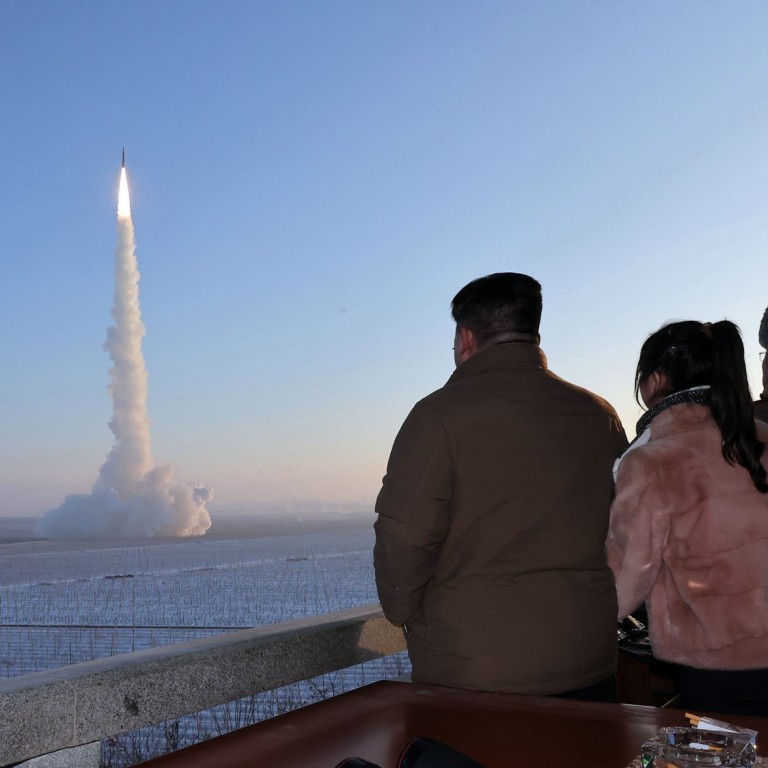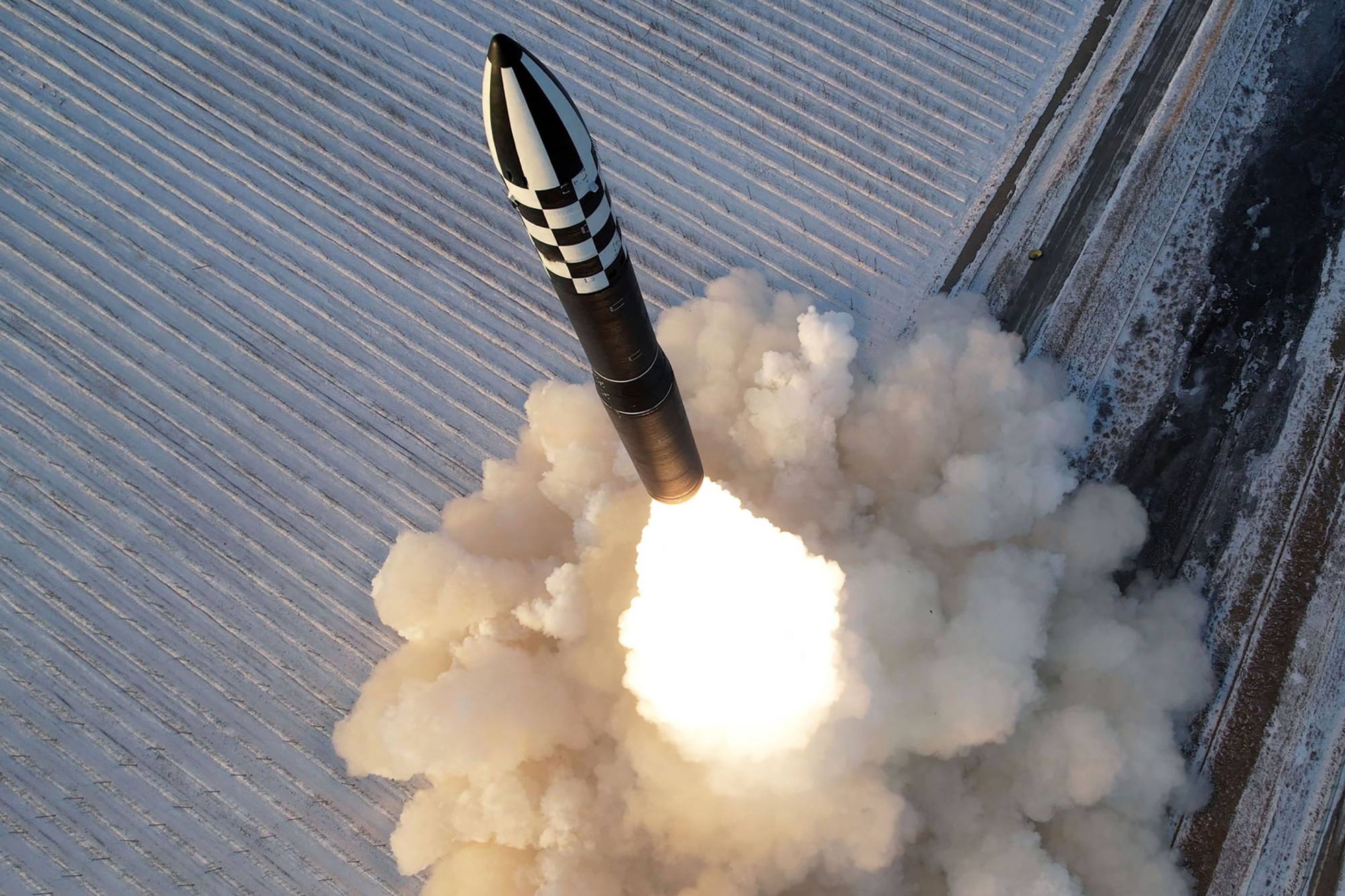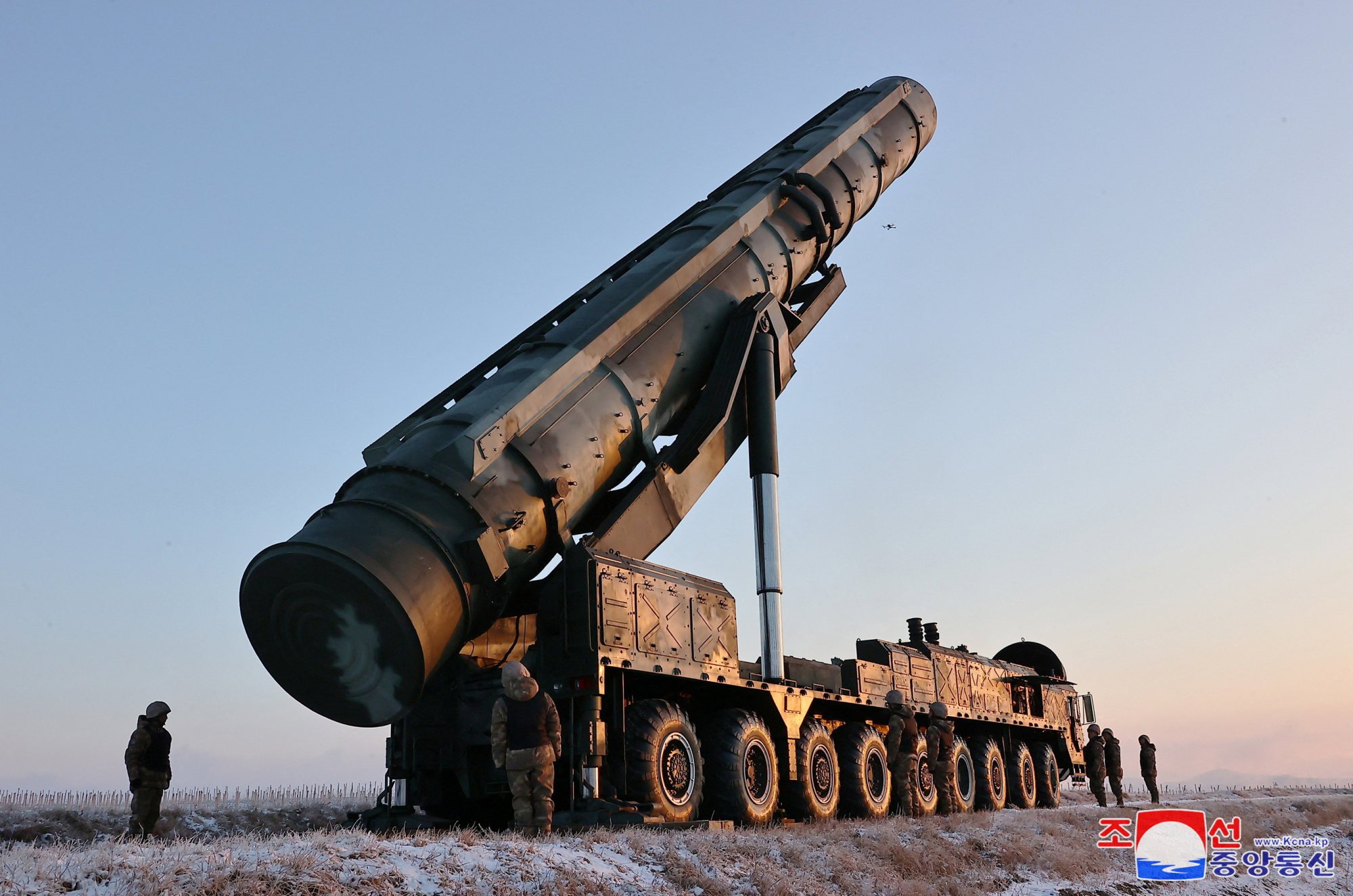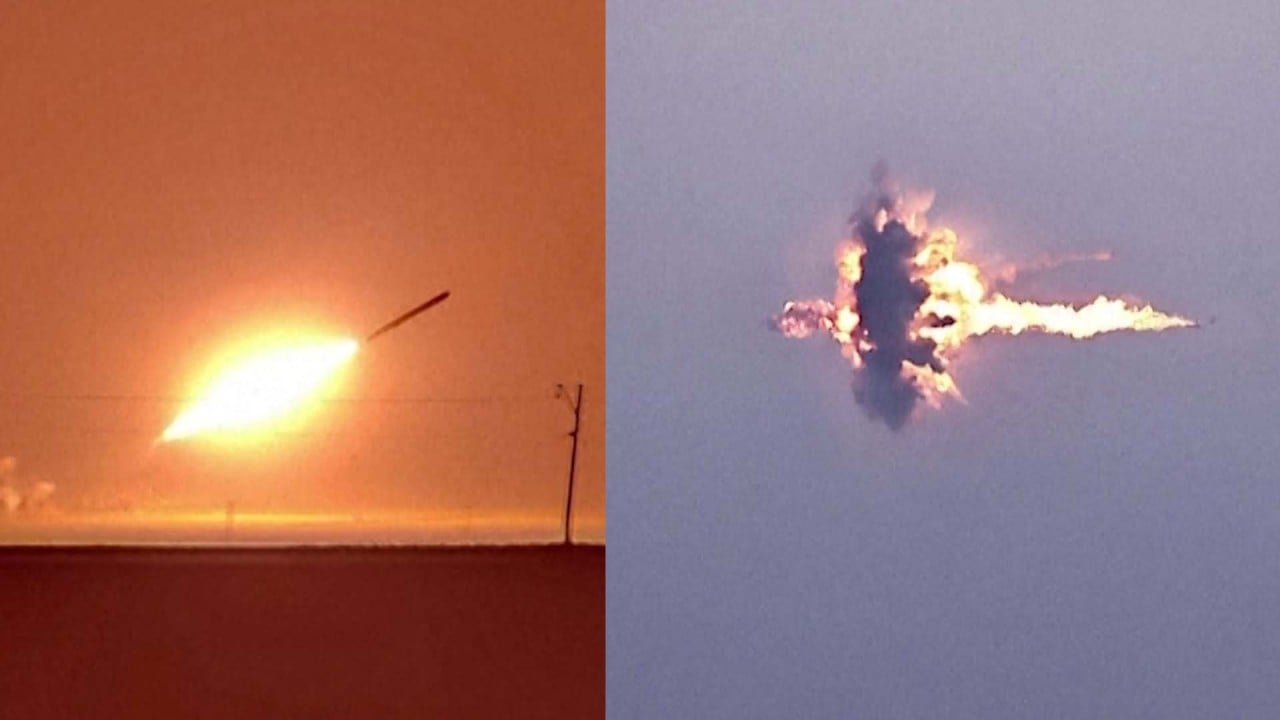
North Korea to keep ‘raising the stakes’ with more ICBM tests before US election, experts warn
- Pyongyang sought to seize the ‘military initiative’ with Monday’s ICBM test, observers say – and it’s far from finished ratcheting up tensions
- More North Korean shows of force have been forecast, including a possible ICBM launch at a less lofted angle to test for atmospheric re-entry
The missile reached an altitude of 6,518km (4,050 miles), flying 1,002km and accurately hitting the intended target, an empty patch of sea, state media reported.

Kim said the launch sends “a clear signal to the hostile forces, who have fanned up their reckless military confrontation hysteria” against the North, according to the state-run Korean Central News Agency (KCNA).
The launch follows a move by Washington and its allies to begin a real-time missile data-sharing system that provoked a show of force from Kim, who is determined to demonstrate his nation’s rising nuclear power can withstand the pressure of sanctions.
North Korea’s defence ministry said the missile-sharing data project was “an open declaration on nuclear confrontation to make the use of nuclear weapons against the DPRK [North Korea] a fait accompli in case of emergency and examine the operational procedures for its implementation in an atmosphere of real war”.
North Korea vows to work with China to ‘safeguard common interests’
Their “attempt to use armed forces against the DPRK will face a pre-emptive and deadly counteraction,” KCNA said.
It also came as the US nuclear-powered submarine USS Missouri has been docked at a key naval base in Busan, 320km southeast of Seoul, since Sunday.
Monday’s launch marked North Korea’s fifth ICBM test this year. There were two previous test-firings of Hwasong-18 ICBMs in April and July, as well as Hwasong-15 and Hwasong-17 ICBMs that were launched in February and March, respectively.
It was aimed at showing “the military initiative on the Korean peninsula lies with North Korea, not the US and South Korea,” Professor Yang Moo-jin of the University of North Korean Studies in Seoul told This Week in Asia.
The North is likely to continue raising the stakes in the coming year in order to obtain the upper hand
Most significantly, however, the North will be strongly tempted to test-launch an ICBM at a less lofted angle than it has done previously, Yang said, as it will want to evaluate whether its missiles are capable of surviving re-entry without burning up in the atmosphere.

“The North is likely to continue raising the stakes in the coming year in order to obtain the upper hand in possible negotiations that might hopefully resume following the US presidential election”, he said.
North Korea has previously said that it would never bargain away its nuclear weapons.
“Isolation, pressure, and deterrence are ill-suited tools” to defang North Korea, Frank Aum, a senior expert on Northeast Asia at the US Institute of Peace, has warned.
“The Biden administration will need to offer North Korea a more full-throated, less equivocal olive branch to transform the vicious cycle of provocation into a virtuous cycle of accommodation. North Korean denuclearisation may well be an impossible goal, but if it were to happen, it would not be through coercion,” he wrote in Foreign Affairs magazine in December last year.
Given Pyongyang’s insecurity and poverty, Washington should be taking steps to strengthen engagement and build trust to lower the risks of a nuclear war, Aum said.
Conversely, he said when Washington engages with Pyongyang, the evidence shows that North Korea tends to behave better – though not perfectly.
The latest missile launch sets the tone for a ruling party meeting from which the North is likely to issue a harshly-worded message, experts say, warning that that it would step up its nuclear deterrence to deal with presumed threats from the United States.
“There are no economic achievements to speak of, so he is focusing on military achievements” through such launches, said Park Won-gon, an associate professor of North Korean studies at Ewha Womans University in Seoul.
Why North Korea rejects US talks: regime ‘never negotiates if it feels strong’
Current US and South Korean policies towards the North appear aimed at forcing it back to the negotiating table by tightening the vice through sanctions and military pressure.
“Washington is afraid that any conciliatory gesture toward Pyongyang would undermine the alliance with the South and Japan, which it hopes to strengthen to cope with not only the North but China and Russia as well”, said Lim Eul-chul, an expert on North Korea at Kyungnam University’s Institute for Far Eastern Studies.
Neither Seoul nor Washington wants to appear weak by extending an olive branch, he said, especially in an election year.
“In the coming months, North Korea is expected to respond strongly with its own military actions against the US and South Korean military drills, ratcheting up military tensions”, Lim said.
“The problem is that currently, there is no tool to prevent this vicious cycle of escalatory tension.”
Additional reporting by Reuters


